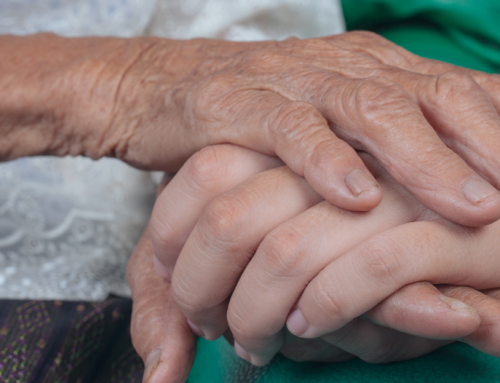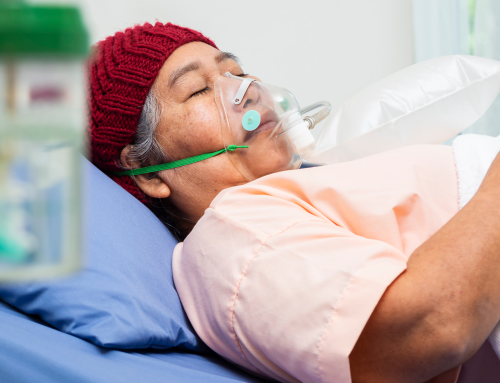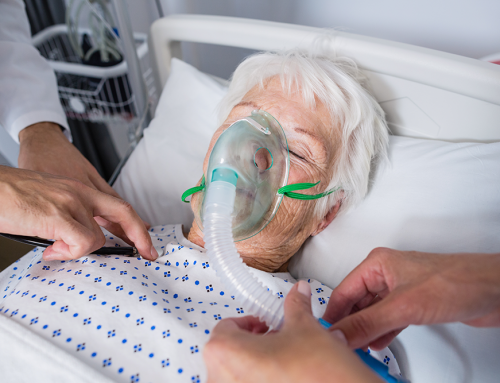
Submitted by: Emily Dileonardo, BSc SRT
Amidst the COVID-19 pandemic, our healthcare system has been pushed to the breaking point. This rapidly changing virus has forced professionals to examine if current resources are sufficient and has highlighted the need to incorporate palliative care into global health (Radbruch, Knaul, de Lima, de Joncheere, & Bhadelia, 2020). However, not all countries are equipped for this method of care.
Palliative Care Role with COVID-19
Palliative care can provide an alternative treatment option for COVID-19, particularly in situations where life support measures’ impact would be minimal. Palliative care can help with symptom control, psychological support, and can support complex decision-making when facing the virus’ uncertainty (Costantini, Sleeman, Peruselli, & Higginson, 2020). The positive impacts of palliative care can be seen with patients suffering from COVID-19 who cannot receive intensive care ventilatory support. These individuals still need to be provided with relief from symptoms and suffering, especially from dyspnea (Radbruch et al., 2020). It has been suggested that for COVID-19 patients experiencing dyspnea, opioids, a common palliative care intervention, can offer relief and are encouraged for use (Radbruch et al., 2020). With COVID-19 patients experiencing end-of-life care, oxygen therapy is discontinued and the saturation levels are extremely low. In these situations, care providers work to provide hypoxic patients comfort, which is when opioids prove to be most effective (Fusi-Schmidhauser, Preston, Keller, & Gamondi, 2020). Although palliative care is beneficial and provides relief to those suffering, access to these end-of-life services is limited from the high demands in all countries, and has resulted in more individuals facing increased isolation when dealing with the virus (Radbruch et al., 2020).
Palliative Care in Low-to-Middle Income Countries
The most significant disproportion in access to care options for COVID-19 has been seen in low-to-middle income countries (LMIC), with the impacts being more severe due to weak healthcare systems, lack of access to disinfectants, inadequate outbreak preparedness, shortages of personal protective equipment (PPE) or medical technology, and difficulty enforcing physical distancing (Radbruch et al., 2020). In underdeveloped countries, the shortages of critical and palliative care services are great, and continuing community-based palliative care has become more challenging because of limited PPE (The Lancet, 2020). Additionally, LMIC health professionals have not received adequate training in providing palliative care, limiting the knowledge and treatment plans available to patients (Rajagopal & Smith, 2020). Encouraged palliative treatment options have also been difficult to establish in these regions as the patients who are experiencing respiratory failure cannot access opioids for end-of-life care (Radbruch et al., 2020). The pre-existing shortage, paired with the increased use of opioids in hospitalized patients, has left many patients in LMIC with respiratory failure unable to access the medication (Radbruch et al., 2020).
Improving the Shortcoming of Palliative Care in Low-to-Middle Income Countries
An estimated 40 million people are in need of palliative care annually, with 78% of these individuals living in LMIC (World Health Organization, 2020). Although palliative care can show great benefits, palliative care teams’ existing shortages will remain a limiting factor as many health teams are already working at or near capacity (Costantini et al., 2020). Additionally, the restrictions and regulatory barriers preventing opioid medicines from being accessed in LMIC prevent individuals from receiving the comfort and benefits of palliative care (Rajagopal & Smith, 2020). Incorporating palliative care into the treatment of COVID-19 patients will be a challenge due to the patient’s changing needs (Fusi-Schmidhauser et al., 2020). The critical patients require care and decisions to be implemented quickly, and treatments must be clear and straightforward for care staff (Fusi-Schmidhauser et al., 2020). Palliative care will allow patients with COVID-19 to have a considerable symptom burden relieved, and it supports open communication with families during a delicate moment in their lives (Fusi-Schmidhauser et al., 2020). To achieve palliative care in LMIC, practical steps must be taken, such as ensuring drugs like opioids are available, as well as proper PPE for care providers (World Health Organization, 2020). Additionally, proper training for health professionals on palliative care is crucial. Training must include symptom management and effective communication strategies on conveying bad news, which is currently not taught to health professionals in most LMIC (Fusi-Schmidhauser et al., 2020).
Respiratory Therapists’ Role in Palliative Care
Respiratory therapists have been at the forefront during the pandemic. Although many countries around the world do not utilize this unique profession, we can still learn from this lack of service in LMIC. As a respiratory therapist, we will be in contact with palliative care patients and their families, so it is essential to understand how to provide this compassionate care with dignity and provide rational judgments and access to the needed treatment plans.
References
Costantini, M., Sleeman, K., Peruselli, C., & Higginson, I. (April, 2020). Response and role of palliative care during the COVID-19 pandemic: A national telephone survey of hospices in Italy. Palliative Medicine, 34(7), p889-895. DOI: https://doi.org/10.1177/0269216320920780
Fusi-Schmidhauser, T., Preston, N., Keller, N., & Gamondi, C. (July, 2020). Conservative Management of COVID-19 Patients – Emergency Palliative Care in Action. Journal of Pain and Symptom Management, 60(1), p 27- 30. DOI: https://doi.org/10.1016/j.jpainsymman.2020.03.030
The Lancet. Editorial [April 11, 2020]. Palliative care and the COVID-19 pandemic. The Lancet, 395(10231), p. 1168. DOI: https://doi.org/10.1016/S0140-6736(20)30822-9
Radbruch, L., Knaul, F.M., de Lima, L., de Joncheere, C., & Bhadelia, A. (April, 2020). The key role of palliative care in response to the COVID-19 tsunami of suffering. The Lancet, 395(10235), p 1467-1469. DOI:https://doi.org/10.1016/S0140-6736(20)30964-8
Rajagopal, M.R., & Smith, R. [April 28, 2020]. The arrival of covid-19 in low and middle-income countries should promote training in palliative care. The BMJ Opinion. Retrieved from https://blogs.bmj.com/bmj/2020/04/28/the-arrival-of-covid-19-in-low-and-middle-income-countries-should-promote-training-in-palliative-care/
World Health Organization (WHO). (August, 2020). Palliative Care. World Health Organization. Retrieved from: https://www.who.int/news-room/fact-sheets/detail/palliative-care
[printfriendly]





